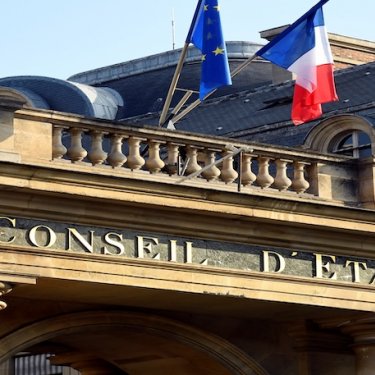RSF files a lawsuit after French regulator claimed it cannot stop Eutelsat’s Russian propaganda

Reporters Without Borders (RSF) has asked France’s Council of State to overrule French broadcasting regulator ARCOM’s assertion that it lacks the legal authority to order Eutelsat, the French satellite operator, to stop transmitting the signals of Russia propaganda media on its satellites.
Read in Russian/читать на русском
The request to the Council of State, which acts as France’s supreme court for administrative justice, was submitted by RSF’s lawyer, Patrice Spinosi, on 17 November. It asks the Council of State to overrule the position taken by ARCOM on 29 September that, under France’s 1986 freedom of communication law, it has no jurisdiction over Eutelsat’s broadcasting of Russian propaganda.
At the same time, RSF has also asked an administrative judge to issue an urgent ruling that ARCOM’s decision is legally incorrect, and thereby force the agency to comply with RSF’s request to order Eutelsat to stop carrying Russian propaganda channels.
RSF’s request to ARCOM (the Regulatory Authority for Audiovisual and Digital Communication) was made in a detailed and carefully argued letter on 8 September on the basis of a dossier prepared by the Diderot Committee, an independent group that promotes the free flow of news and information.
The letter asked ARCOM to order Eutelsat to stop transmitting the signals of three Russian TV channels to Russia, Ukraine and the Baltic countries. The three channels, which are the spearheads of the Kremlin's war propaganda machine, are packaged by two Russian TV channel distributors, NTV+ and Trikolor, which have stopped providing Russians with channels containing real journalism, such as the BBC, EuroNews and France 24.
“ARCOM's refusal to address a major issue to fight propaganda and support journalism, is very regrettable. We ask for its refusal to be declared illegal by the Council of State. In the age of hybrid warfare, should Eutelsat be one of the new war’s profiteers? No one is more blind than the person who does not want to see.
While, in a certain sense, welcoming the speed of ARCOM’s response to its letter of 8 September, RSF is surprised that the agency took only three weeks to prepare its position on such an important and complex issue, and regrets that it did not invite RSF to defend its case in person. RSF notes that, paradoxically, ARCOM does not question RSF’s well-supported assertions about the criminally reprehensible nature of the content on these three TV channels.
Two alternative competence criteria
Under article 43-4 of France’s 1986 freedom of communication law, ARCOM would have legal authority if the TV channel signals were transmitted from a satellite uplink station located in France or another European Union member state. Or, failing that, if the signal transmission involved the use of satellite capacity over which France has jurisdiction.
ARCOM’s response considers only the first of these criteria and ignores the second. ARCOM pretends that, despite all the evidence, the location of the satellite uplinks is uncertain and it concludes that, for this reason, French jurisdiction cannot be exercised.
In its submission to the Council of State, RSF points out that there is abundant evidence – that can be quickly found in an Internet search – that the satellite uplinks for the three TV channels are located in Russia. But, although the first criteria is clearly not satisfied, the second criteria is. France has jurisdiction because these TV channel signals are carried by the satellites of Eutelsat, a French company based in France. However, ARCOM fails to address the second criteria.
ARCOM also argues that it has no jurisdiction because the three TV channels are broadcast by platforms marketed in Russia and “the number of EU citizens having access to them can therefore only be limited.”
This argument is invalid. It is not based on any law. And anyway, these TV channels are accessible in the Baltic countries, which are part of the EU. They are also broadcast in the annexed parts of Ukraine (Crimea and Donbas) and Ukraine’s occupied territories.
